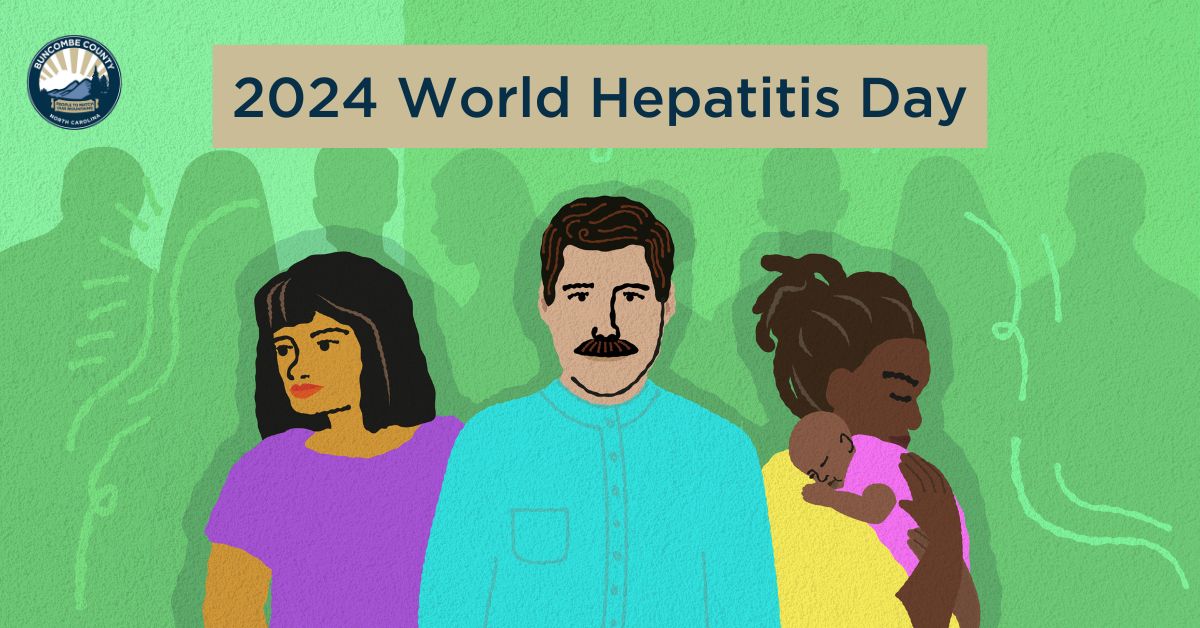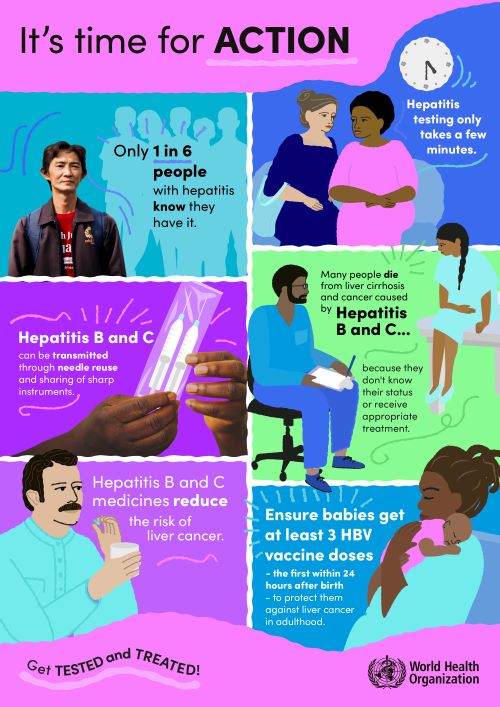This news item expired on Monday, June 30, 2025 so the information below could be outdated or incorrect.

Hepatitis, a viral infection that causes inflammation of the liver and causes death in severe cases, can be prevented with the right measures.
Sunday, July 28 is World Hepatitis Day. Let’s take the opportunity to consider the recommended health advice for us and our loved ones so we can live long and healthy lives.
To prevent hepatitis, we need to start with testing, vaccination (when applicable), and preventive methods.
There are 5 main strains of the hepatitis virus – A, B, C, D, and E. Together, hepatitis B and C are the most common infections, resulting in 1.3 million deaths and 2.2 million new infections per year.
Symptoms
Symptoms include dark urine, stomach pain, yellow skin or eye whites, pale or clay-colored stool, low-grade fever, loss of appetite, fatigue, aching joints, and feeling sick to your stomach.
Some people with acute hepatitis infections do not have symptoms or only have mild symptoms. Others may become severely ill.
How It Spreads
Hepatitis A and E are typically caused by ingestion of contaminated food or water. Hepatitis B, C, and D usually occur as a result of contact in various ways with infected body fluids. Common modes of transmission for these viruses include receipt of contaminated blood or blood products, invasive medical procedures using contaminated equipment/ For hepatitis B transmission can occur from mother to baby at birth, from family member to child, and also by sexual contact.
Injection drug use, specifically the sharing of injection equipment, linked to the opioid and heroin epidemics has been a big contributor to recent growth in spread among young adults.
Vaccines
Hepatitis A and B are vaccine preventable. While no vaccine exists for Hepatitis C, it is curable in one short course of treatment.

Recommendations:
There are many ways to reduce your chances of getting hepatitis:
- Get vaccinated for hepatitis A and hepatitis B.
- The Buncombe County Immunization Clinic provides these vaccinations free of charge to qualifying individuals. Call (828) 250-5096 to make an appointment or click here to learn more.
- Use a condom during sex.
- Regardless of condom use, it is important to talk about your sexual history before having sex. Some questions to ask are:
- When was the last time you slept with someone else and did you use protection?
- When was the last time you got tested and what were your results?
- Don't share needles to take drugs.
- Buncombe County Syringe Services, located on the bottom level of 40 Coxe Avenue, includes a syringe exchange program. Our staff is dedicated to improving the health of our community by exchanging used syringes for new ones. Click here for more information.
- Practice good personal hygiene such as thorough handwashing with soap and water.
- Don't use an infected person's personal items (razors, toothbrushes, etc.)
- Take precautions when getting any tattoos or body piercings.
If you have risk factors for hepatitis B and C such as unprotected sex, sharing needles, living with someone who has a chronic HBV infection, an infant born to an infected mother, having a job that exposes you to human blood or traveling to regions with high infection rates of HBV, such as Asia, the Pacific Islands, Africa and Eastern Europe or C infection, get tested.
If you are infected, treatments are available and there are steps you can take to avoid spreading your infection to others.